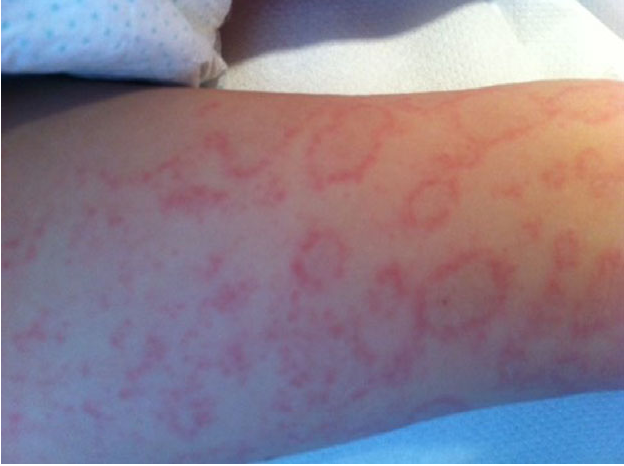What is vasculitis?
Vasculitis is inflammation of blood vessels that causes changes in the blood vessel walls. Blood vessels may become weak, stretched, and either increase or decrease in size. It can range from minor to hazardous. Timely recognition and treatment of severe vasculitis can save permanent damage of the vessels. Detection of vasculitis most often requires cell removal of affected tissue or angiography.
Vasculitis is a word for a set of rare ailments that have in common tenderness of blood vessels. These vessels comprise pathways and veins. There are several kinds of vasculitis, and they may differ significantly in indications, sternness and period. Most natures of vasculitis are unusual, and the reasons are usually not known. Vasculitis disturbs people of both the sexes and all ages.
Vasculitis can effect in reduced blood stream to tissues all over the body, such as the lungs, nerves and skin.
What are the Symptoms of Vasculitis?
Symptoms of vasculitis differ greatly and be contingent upon the organs affected and the severity of the ailment and generally related to reduced blood flow in entire body.
- Squatness of breath and cough
- Deadness or paleness in a hand or foot
- Red spots on the skin (“purpura”), bumps (“nodules”) or boils (“ulcers”)
- If veins grieve loss of blood supply, there may primarily be an irregular sense trailed by a damage of sensation or muscle weakness.
- Sometimes the symptoms may be as common as fever, and fatigue, loss of appetite, weight loss, general pains, Rashes, Night Sweat, and numbness in nerves.
- Vasculitis of the kidneys may produce no signals initially but still a hazardous problem.
- Some other common symptoms are like blurred vision, eye redness, joint swelling, gangrene, skin discoloration etc.
Vasculitis can be minor or incapacitating, or even lead to a demise. Patients can have one incident of vasculitis or have frequent events over several years. Most forms of vasculitis are uncommon.
Vasculitis Prognosis –
Prognosis means a prediction or forecast of medical aspects. The prognosis for vasculitis is subject to the form of the ailment a sufferer is going through, which body part are affected, how quickly the condition worsens and the severity of the vasculitis
What are the Types of Vasculitis?
Generally the types of vasculitis are defined rendering to the size of the affected blood vessels. The most critical forms of vasculitis include both small and medium-sized veins.
Each of the vasculitis diseases is determined by specific forms of distribution of blood vessel contribution, specific organ participation, and laboratory test irregularities.
The definite cause of these vasculitis ailments is generally not known. However, resistant system deviation and swelling of blood vessels are common structures.
There are nearly 20 different ailments that are categorized as “vasculitis”.
Takayasu Arteritis
Takayasu arteritis (TA) is an infrequent seditious ailment that affects the core blood vessel from the heart and its large branches, generally in younger females.
Giant Cell Arteritis
Giant cell arteritis is an illness that causes severe swelling in the blood vessels, and usually disturbs the veins in the skull. If gone untreated, it can reason sightlessness.
Polyarteritis nodosa
Polyarteritis nodosa (PAN) is a very serious but uncommon type of vasculitis, which causes irritation to medium-sized arteries, mainly those bringing blood to the gut and kidneys.
Kawasaki Disease
Kawasaki disease is pretty uncommon disorder which affects small and medium-sized veins, normally in children under the age of five.
Granulomatosis with polyangiitis
Granulomatosis with polyangiitis is another infrequent form of vasculitis, which generally grows with ear, nose and throat problems. The general vasculitis frequently involves the skin, lungs, eyes and kidneys.
Behcet’s Disease
Categorized by the troika (set of three) of mouth ulcers, genital ulcers, and eye soreness. Conversely, other organ structures may also be affected.
Buerger’s Disease (Thromboangiitis Obliterans)
This type of vasculitis majorly affects cigarette smokers, leading to reduced blood stream to the hands and feet.
Eosinophilic granulomatosis with polyangiitis (formerly recognized as Churg Strauss)
This type of vasculitis is connected with asthma, elevated eosinophil counts, nasal polyps, sinusitis, and vasculitis. It has a nature to involve lungs, kidneys, peripheral nerves, skin, and heart.
Cryoglobulinemia
Characterized by recurrent purpura (red spots) on the lower ends and may be allied with hepatitis C virus contaminations or paraproteinemias.
Henoch-Schönlein Purpura
This disorder is frequently trailed after an upper lung tract infections.
Microscopic Polyangiitis
This type of vasculitis is a systemic vasculitis upsetting small and medium–sized blood vessels linked with the autoantibody.
Polyarteritis Nodosa
This type of disorder is a sample of systemic vasculitis, involving many different organ systems and focused on medium–sized veins.
Polymyalgia Rheumatica
This is a syndrome of pain and rigidity limited to the shoulders and hips which often transpires in association with Giant Cell Arteritis.
Rheumatoid Vasculitis
This type of vasculitis occasionally obscures the sequence of rheumatoid arthritis. Generally happens in patients with a history of severe Rheumatoid Arthritis.
Vasculitis Treatment:
If vasculitis is the consequence of an allergic reaction, it may get cured on its own and does not require any treatment. In other cases, when serious organs such as the kidneys, brain or lungs are involved, aggressive and apt treatment is necessary.
As vasculitis is triggered in part by an excessively energetic immune structure, the treatment generally contains the practice of medications that destroy parts of the immune system. The most common dealings of vasculitis are discussed below.
Treatment for vasculitis is subject to the nature of vasculitis, like which tissues are affected, and the severity of the disorder. People who have minor vasculitis may get aid with painkillers such as, ibuprofen, naproxen, acetaminophen or aspirin. The vasculitic illnesses are serious ailments, and often need hypothetically hazardous actions.
Curing usually consists of steroids and chemotherapy drugs. The objective of this kind of remedy is to destroy the odd immune response that has headed to blood vessel destruction.
Possible side effects of these drugs contain augmented threat of infertility, infection and cancer. So even though this drug is effective in controlling tenderness, it isn’t always the first considerable option, particularly for long-term treatment.
Rituximab is a harmless and effective alternative for treating some natures of vasculitis. It has demonstrated to be a decent alternative for upkeep therapy, unless one has hepatitis B. A side consequence of rituximab is an amplified risk of rebooting hepatitis B.
One of the extreme challenges of living with vasculitis can be surviving with side effects of medication. Side effects of Vasculitis medications can be very serious if they are taken for longer time. Possible side effects include weight gain, bone thinning (osteoporosis), and increased blood sugar level.
The following advices may help:
- Realize your illness:Study everything you can related to vasculitis and its cure. Identify the probable side effects of the medicines you take, and update your practitioner about any deviations in your condition.
- Keep an eye on your treatment plan:Your treatment plan may contain visiting your doctor repeatedly, experiencing more examinations and inspecting your blood pressure regularly.
- Opt for a healthy diet:Eating healthy can advantage avoid probable problems that can effect from medicines, such as diminishing bones, high blood pressure and diabetes. Elect a regime that highlights fresh fruits and vegetables, lean meats and fish, whole grains, low-fat dairy products etc.
- Get routine immunizations:Keeping up to date on immunizations, such as for flu and pneumonia, can help prevent infections due to the dosage of medications.
- Exercise Regularly:Regular exercises, such as walking, yoga can help prevent bone diminishing, high blood pressure and diabetes that can be connected to taking corticosteroids. Workouts also benefit your heart and lungs. In addition, many people find that exercising enhances their attitude and overall wisdom of well-being.
- Uphold a solid support system.Family and friends can support you as you cope up with this illness. If you consider talking to other people who are living with vasculitis, ask a member of your health care team about joining a support group.
A healthy lifestyle and diet help relieve the stress due to the illness. One should prefer distressing himself with meditations, positive attitude, and regular exercises.

